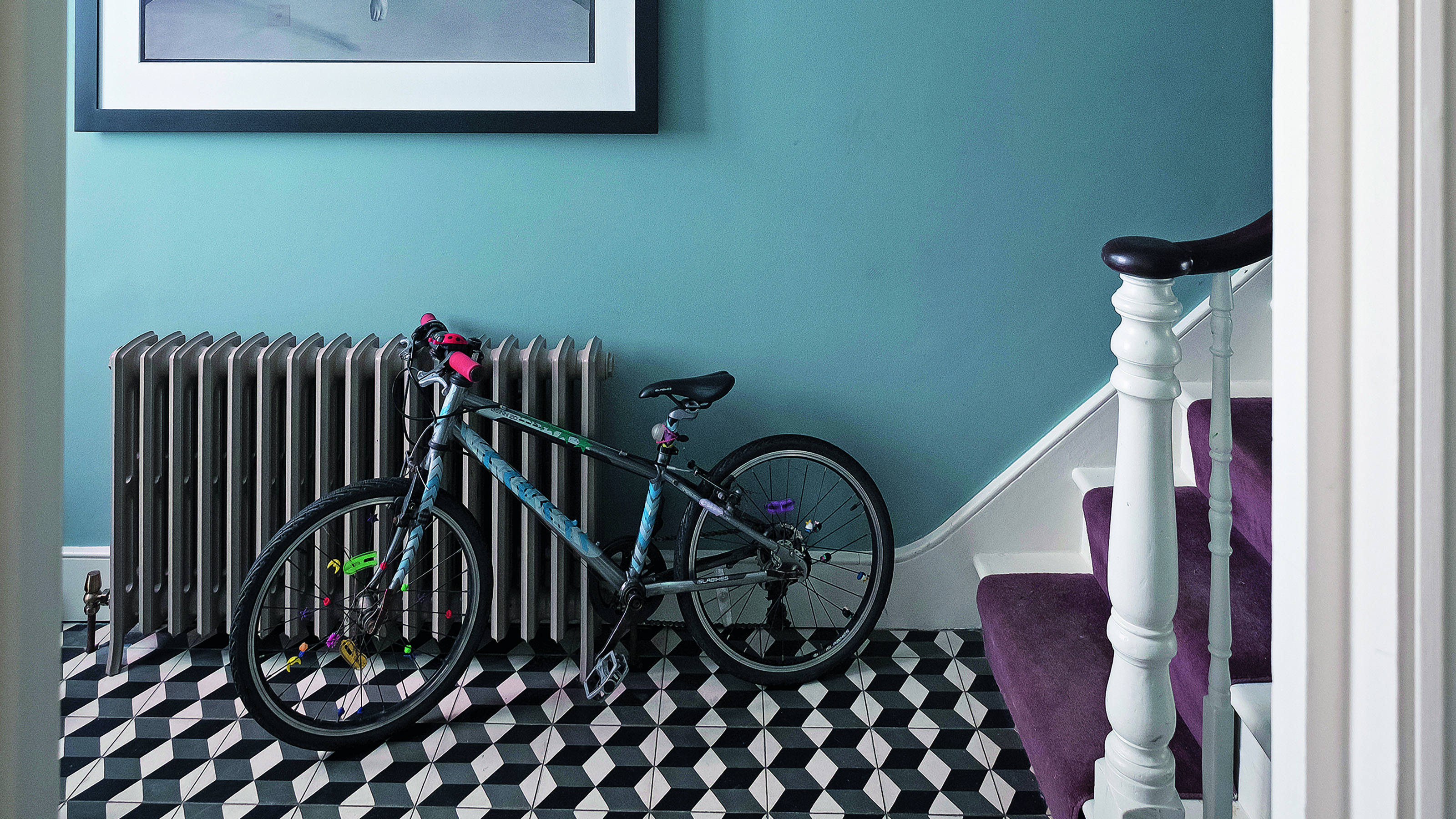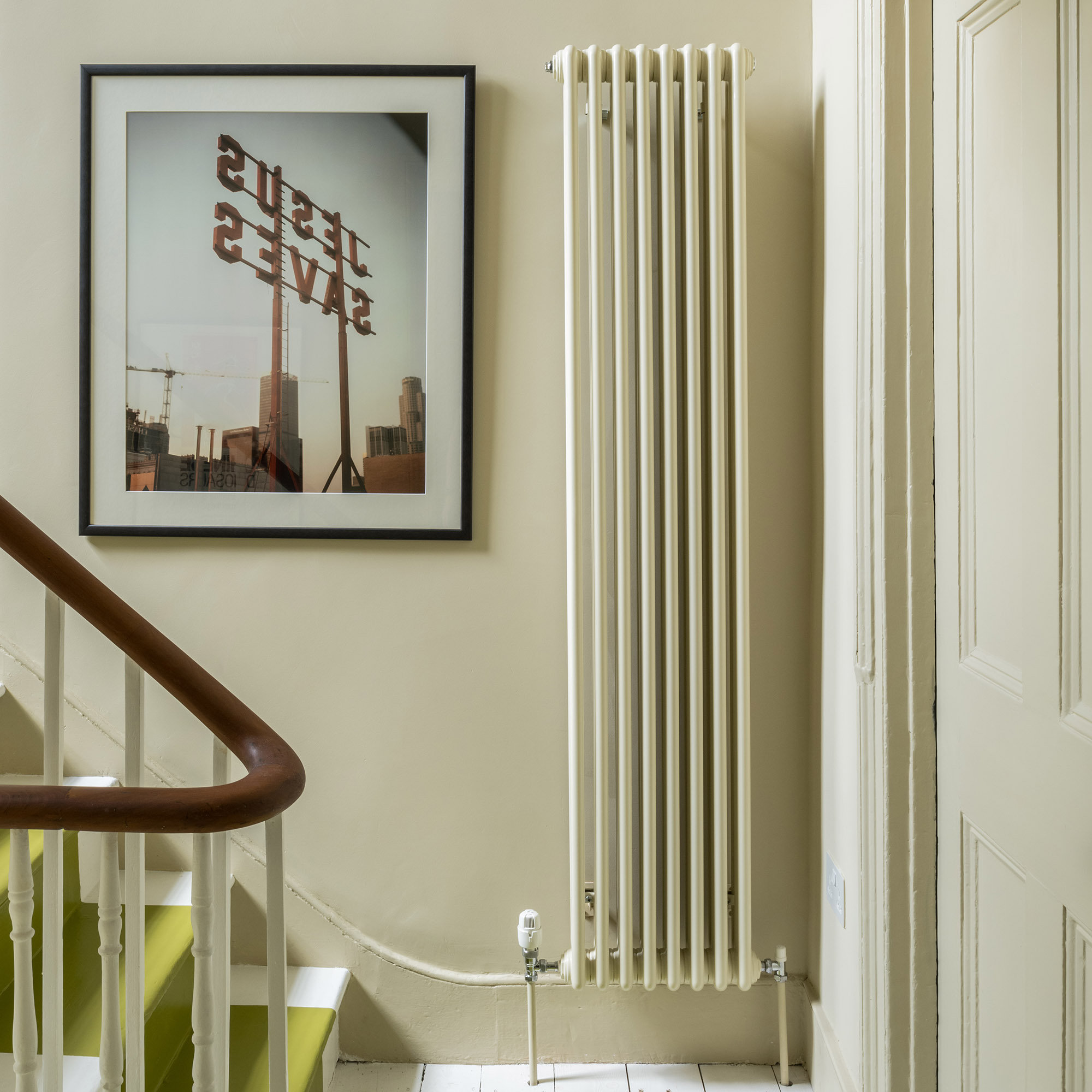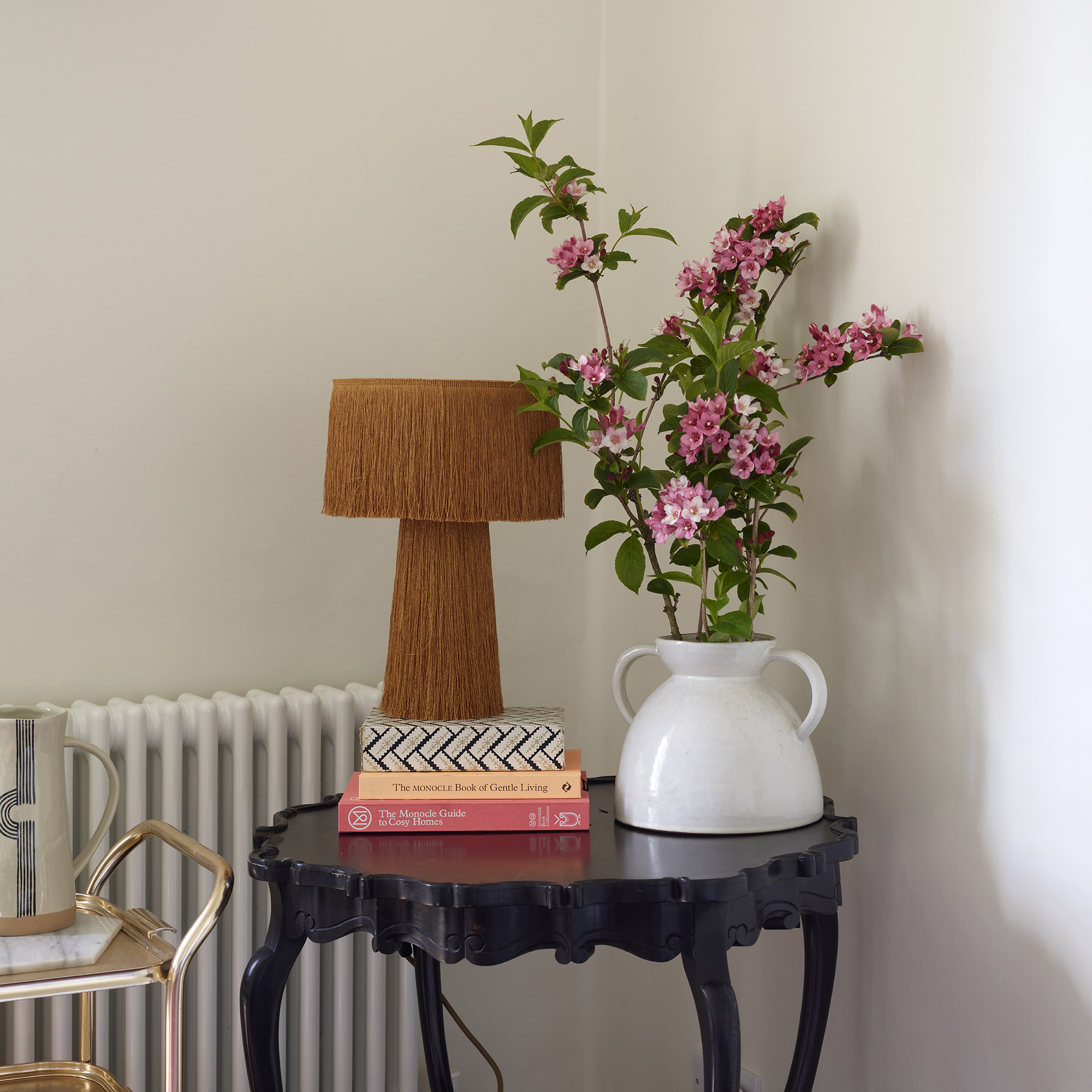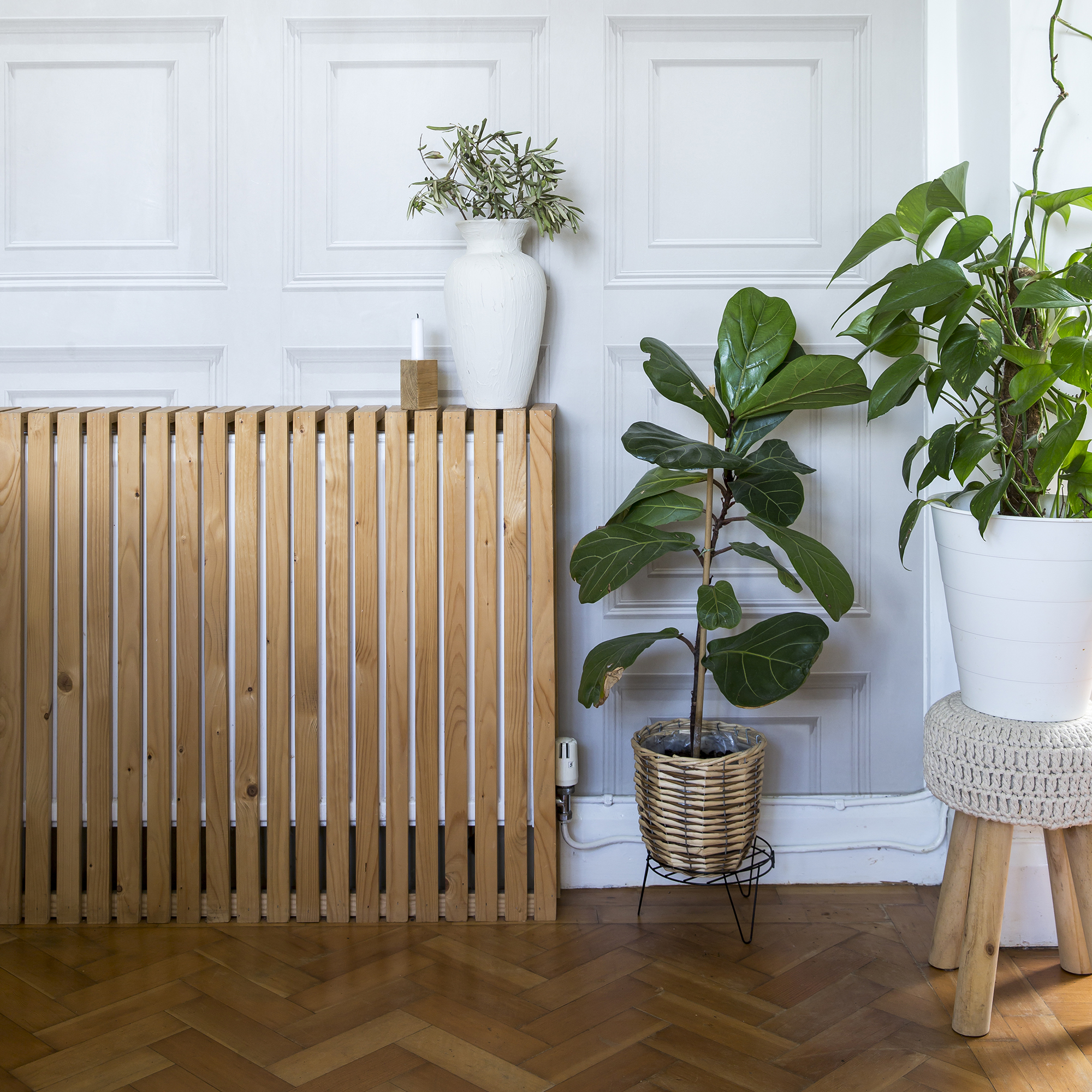Spooked by a noisy radiator? These are the sounds that could be bad news for your heating
Including how to stop them...


Sign up to our newsletter for style inspiration, real homes, project and garden advice and shopping know-how
You are now subscribed
Your newsletter sign-up was successful
We've all experienced the moment in a quiet home where you mistake a noisy radiator for a potential intruder. And with it almost time to turn on your heating for the winter months, these sounds are even more prevalent. But what exactly causes a noisy radiator? And should you be concerned?
An efficient radiator is essential for heating your home properly but also for saving energy, so you'll want to make sure that any noises aren't a sign of something more sinister. With help from heating experts, we've diagnosed the different sounds so you can sit back safe in the knowledge that your radiators are working efficiently, and that there are no unexpected guests in your home.

What causes a noisy radiator?
In some instances, a noisy radiator is simply down to the heating system functioning, however, sometimes it can be a sign that you need to maintain the radiator so that it performs efficiently.
'Unfortunately, the more we use our radiators, the more problems that can arise. The quicker these issues are rectified, the quicker you can get your heating back up to scratch and the less expensive it will be to run and repair,' advises Dominic Lees Bell, heating expert at OnlyRadiators.
'Sometimes radiators can tell us themselves what’s going on inside and this can be in the form of clicking, gurgling, a running water sound and even banging. Each one of these noises can suggest something is going on but are either easily fixed or nothing to worry about at all.'

Dominic is a bathroom and heating expert. He has a family background in the bathroom industry which has allowed him to build up a raft of knowledge over the years. He has a particular interest in bathroom design and commenting on heating trends. He has represented Only Radiators as a Bathroom and Heating Consultant for more than 8 years.
1. Clicking radiator
This is one of the most common noises that your radiator might make. And the good news is that it's quite normal.
'It’s most likely that this is caused by expansion of the metal after a rush of hot water flows into it. Similarly, when the radiator cools down, the metal contracts as the hot water gets cooler,' advises Dominic.
Sign up to our newsletter for style inspiration, real homes, project and garden advice and shopping know-how
'You’ll likely hear these clicking noises from your radiator when the heating is first turned on or turned off and it doesn’t mean your radiator is about to explode, so you do not need to worry about radiator clicking noises unless it persists or changes in sound.'
2. Gurgling radiator

Like what might happen to our stomachs, a noisy radiator that makes a gurgling sound is likely just the result of trapped air that is desperate to escape.
'Essentially, whilst hot water is used to heat radiator pipes, air can sometimes become trapped with said water, leading to the forming of radiators' cold spots, typically at the foot of the device,' says Jess Steele, heating technology expert at BestHeating.
'The process of bleeding a radiator offers the most simple and common fix for a gurgling radiator. In fact, it's highly recommended that home radiators are bled at least once a year ahead of the colder winter months to make sure they’re primed to perform when you need them the most.'
3. Running water noise
Running water sounds might leave you wondering whether you accidentally left the tap running, but it's just another noisy radiator sound that isn't cause for concern.
'Your radiator may be making noises that sound like running or dripping water which can also be caused by air pockets. Although water is used to heat radiators, you shouldn’t be able to hear the water, so it’s likely the trapped air is limiting the water from circulating the radiator pipes properly,' adds Dominic.
'You can also solve this problem by bleeding your radiator to ensure all the air escapes, which enables a steady flow of water inside your radiator pipes.'
4. Banging noise

Perhaps one of the most frightening radiator noises, banging is the last sound that you want to hear around your home. It can be caused by kettling, which is a build-up of limescape in the central heating system, rather than the radiator itself. This is particularly common in hardwater areas such as the South and East of England.
Dominic recommends solving this annoying noise by 'draining your radiator to free up trapped water and air. You need to ensure you turn off the boiler and gas supply, turn off the intake valve, wait for the radiator to cool down and open the drain valve again. You should have some liquid released by the radiator which you can catch in a bowl, at this point you can turn the valve off and turn everything back on.'
'If the banging noise persists, it may be that you need to have your boiler power flushed to ensure all the limescale and grime is removed. This will minimise future sounds and keep your heating as efficient as possible.'
5. Whistling noise
A noisy radiator whistling is maybe one of the least concerning sounds, as we're more familiar with kettles making the same noise. Whistling might occur when the air inside the radiator is heated and begins to expand and move through the pipes. The movement of air causes the pipes to vibrate, which then creates a whistling sound.
'Check to see if the whistling noise is coming from the air vents,' Dominic advises. 'If it is, you may need to adjust the valves to reduce the air flow. If the noise is not coming from the air vents, it may be coming from the pipes. Check the pipes to make sure they are properly connected and that there are no loose connections.'
'Finally, check the radiator itself. If the whistling noise is definitely coming from the radiator itself, it may be due to a build-up of sediment. To fix this, you can try flushing the radiator with a mixture of water and vinegar.'

FAQs
How to bleed a radiator
To remedy your noisy radiator, the most common advice is to bleed it. This should be done on a yearly basis, especially before you turn your heating back on, just to ensure it's all running smoothly.
'You need to ensure you turn off the boiler and gas supply, turn off the intake valve and wait for the radiator to cool down,' says Dominic.
'Then open the drain valve again. You should have some liquid released by the radiator which you can catch in a bowl, at this point you can turn the valve off and turn everything back on.'
You'll be well on your way to a warm (and peaceful) home in no time...

After starting out her journey at Future as a Features Editor on Top Ten Reviews, Holly is now a Content Editor at Ideal Home, writing about the very best kitchen and bathroom designs and buys. At Top Ten Reviews, she focussed on TikTok viral cleaning hacks as well as how to take care of investment purchases such as lawn mowers, washing machines and vacuum cleaners. Prior to this, Holly was apart of the editorial team at Howdens which sparked her interest in interior design, and more specifically, kitchens (Shaker is her favourite!).